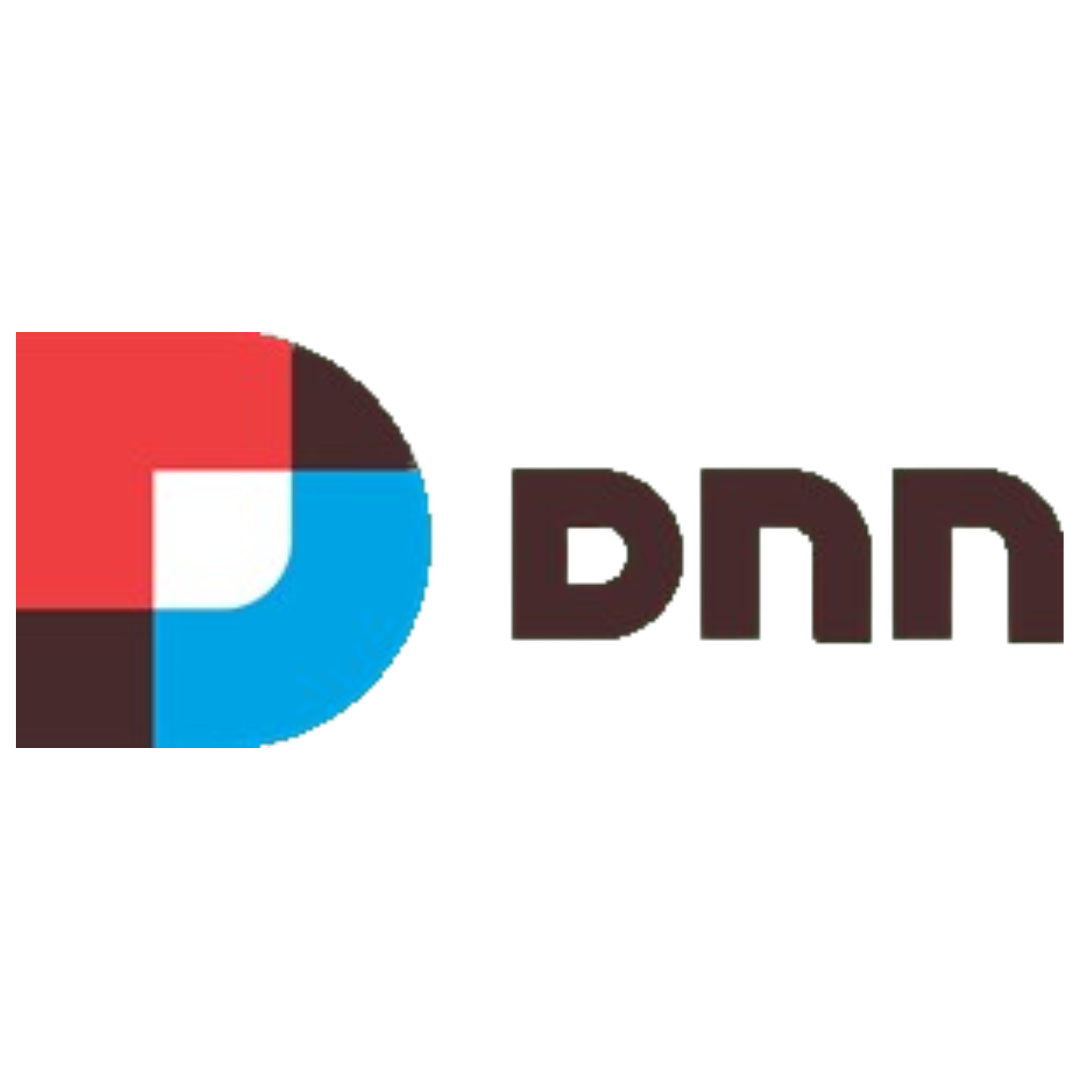
15 Reasons Why Should You Outsource .NET Developers
Website development horizons are constantly expanding through their optimized process to stay ahead of the competition. One strategy that has gained significant traction is outsourcing. When the topic of .NET developers arises, the requirements of manpower rise as the beacon of outsourcing. They submit breathtaking projects with mere cost-savings which state their benefits as strategic catalysts because your project needs unparalleled success.
If you are looking for Outsource skilled .NET developers you can contact Exavibes. You can visit their page here - https://www.exavibes.com/hire-dot-net-developer
What is IT Resource Outsourcing?
IT Resource outsourcing also known as IT staff augmentation, is a business practice in which companies hire external IT professionals or teams to manage or execute specific IT functions or projects. This can include tasks like software development, network management, cybersecurity, and IT support. It results in cost-efficiency, flexibility, and accessibility to specialized skills without the logistical demands of maintaining an in-house development team. It is a pivotal driver of innovation and efficiency in the dynamic landscape of software development.
15 Reasons Why Businesses Should Consider Outsourcing .NET Developers:
In today's dynamic and competitive business environment, organizations are constantly seeking ways to optimize their operations, enhance their productivity, and gain a competitive edge. Outsourcing .NET development has emerged as a strategic approach for businesses to achieve these goals. By entrusting their software development needs to specialized .NET experts, businesses can reap a multitude of benefits, including reduced costs, improved focus on core competencies, and access to a wider pool of talent.1. Cost Efficiency
Hiring .NET Developers is a strategic thing to do for businesses that look for cost-efficiency. When you purchase the skills of a mastermind, you get all the excellence of labor costs and organizations can achieve significant savings that don’t compromise the quality of software development projects. Businesses can rely on these developers and utilize their resources for other critical areas that require attention for fostering financial stability and growth.
2. Access to the Global Talent Pool
A prominent reason why you must outsource .NET Developers is for a vast and diverse talent pool. You can cherry-pick developers with a specific skill set and expertise, catering to your needs that ensure your projects are handled by professionals who align perfectly with the unique requirements of the task at hand. This global talent acquisition strategy brings fresh perspectives to the table and fosters a culture of innovation within the development team.
3. Focus on Core Competencies
Businesses can streamline their focus by outsourcing .NET Developers. It is done by delegating development tasks to external experts and in-house teams to concentrate on their core competencies. It can either be strategic planning, marketing, or other business-critical activities. The developers are skilled enough to an agile and responsive organizational structure by enabling a quicker adaptation to the dynamic market atmosphere.
4. Accelerated Time-to-Market
Hiring a dedicated outsourced team that has all the intelligence is well-versed with the latest technologies and takes less time to take the product live in the market. This acceleration is significant in today’s fast-paced business environment for taking the necessary steps that often make a substantial difference. Shortened time-to-market enhances a product’s competitive edge and also allows businesses to capitalize on market trends more effectively.
5. Flexibility and Scalability
The flexibility inherent in outsourcing is a major asset for businesses. They scale up development teams as per their project needs and allow organizations to adapt swiftly to changing workloads to ensure optimal resource allocation and efficiency. This scalability gives cost advantages and also positions businesses to respond promptly to market demands to maintain a competitive edge in dynamic industries.
6. Risk Mitigation
Collaborating with outsourced partners means sharing project risks. This collaborative approach defines risk management strategies to allow a more resilient response to challenges that may arise during the development process. There is a shared risk perspective that fosters a sense of partnership to encourage transparent communication and proactive problem-solving for the best outcomes.
7. Continuous Development Cycle
With global outsourcing, you get a 24/7 development cycle. It has teams operating in different time zones and development to progress around the clock by reducing time barriers and development cycle to ensure that progress is made at all hours by prompting a steady workflow and by minimizing delays in timelines.
8. Quality Assurance
When you collaborate with reputable outsourced providers, you get robust quality assurance processes in place. This also ensures that your final product is delivered and boosts the confidence, reliability, and functionality of the software. It gives rigorous quality assurance that not only leads to a superior end product but also enhances the overall experience of usage by contributing to customer satisfaction and loyalty.
9. Access to Latest Technologies
.NET Developers are updated with the latest technologies which might be a challenge for certain businesses. Outsourcing partners who are specialists in their field bring a wealth of knowledge on cutting-edge tools and methodologies that keep your project at the forefront of innovation. This continuously infuses your technology expertise with future-proving your projects and also positions your business as a leader in the industry with its emerging trends.
10. Language and Cultural Alignment
Having effective communication is paramount in software development. You can choose outsourcing partners that have similar language and cultural backgrounds to foster a better understanding and collaboration to create a seamless development process. This alignment removes the communication difficulty and gives a shared sense of purpose and commitment to a project’s success by enhancing team collaboration and productivity.
11. Strategic Planning Focus
By outsourcing day-to-day development tasks, in-house teams can shift their focus to strategic planning, decision-making, and overall project management efficiency. This allows you to align with development efforts for creating broader organizational objectives. With strategic planning, developers enable businesses to set long-term goals and anticipate market trends to position themselves for sustained growth and competitiveness.
12. Reduced Overhead Costs
Outsourcing eliminates the necessary requirement of having additional office space and reduces the need for resources like equipment, and other overhead costs. This reduces cost and contributes to an overall cost-saving to generate revenue for the business. This also fosters financial flexibility through reduced overhead costs and allows businesses to allocate resources for innovation, marketing, and other initiatives crucial for sustained growth.
13. On-Demand Expertise
This on-demand nature of outsourcing allows businesses to bring specialized expertise as required. This flexible approach gives access to skills without a long-term commitment and cost reduction of hiring full-time employees. On-demand expertise ensures that businesses can adapt to their evolving project requirements swiftly to foster agility and responsiveness in their ever-changing business landscape.
14. Improved Risk Management
When you outsource developers, you get their extensive years of experience to get defined insights on risk management. Their proactive problem-solving approach contributes to a smooth development process with minimized disruptions. Efficient risk management safeguards project timelines and budgets for cultivating a culture of continuous improvements to enhance the overall efficiency of the development lifecycle.
15. They are focused on Business Growth
Outsourcing software development empowers businesses to concentrate on other core competencies and strategic growth initiatives. This also focuses on innovation and expansion leading to increased market share, improved competitiveness, and an overall success of business. Businesses can also channel their resources to exploring new markets to develop groundbreaking products to drive better results for sustaining in the market.
5 Checkpoints to hire the best .NET developer
To ensure a successful outsourcing partnership that delivers on project expectations, it is essential to carefully evaluate potential agencies and make an informed decision. This guide outlines five key steps to help you choose the best outsourced development agency for your specific needs.1. Portfolio Assessment
In the competitive landscape of software development, identifying and hiring the right .NET developer is crucial for businesses to achieve their project goals and maintain a competitive edge. With the ever-evolving nature of .NET technologies and the increasing demand for skilled developers, selecting the most suitable candidate requires a thorough evaluation process. By carefully considering technical expertise, problem-solving skills, communication abilities, experience, and cultural fit, businesses can make informed decisions that lead to successful project execution and long-term growth.
-
Project Diversity
- Examining the variety of projects in the portfolio helps assess the developer's versatility. A diverse range of projects demonstrates the ability to work on different types of applications and challenges.
-
Technology Stack Proficiency
- Assessing the technologies used in each project provides insights into the developer's proficiency with the .NET framework and related technologies. This includes knowledge of ASP.NET, C#, MVC, Entity Framework, and other relevant tools.
-
Project Scale and Complexity
- Understanding the scale and complexity of projects showcases the developer's capability to handle different project sizes and levels of complexity. This is crucial for determining their suitability for specific tasks.
-
Code Quality and Structure
- Reviewing code samples within the portfolio allows for an evaluation of coding standards, readability, and overall code quality. Well-structured, clean code is indicative of a skilled and disciplined developer.
-
Problem-Solving Skills
- Examining how the developer has addressed challenges and solved problems in past projects gives insights into their problem-solving skills. This is particularly important for assessing their ability to troubleshoot issues in .NET applications.
-
User Interface (UI) and User Experience (UX)
- For developers involved in front-end development, assessing the UI/UX aspects of projects helps gauge their design sensibilities and their focus on delivering a positive user experience.
-
Collaboration and Teamwork
- If the developer has worked on team projects, the portfolio can reflect their ability to collaborate with others, adhere to project timelines, and contribute effectively to a team environment.
-
Innovation and Creativity
- Identifying instances of innovation or creative problem-solving within the portfolio demonstrates the developer's ability to think outside the box and bring innovative solutions to the table.
-
Documentation and Communication
- Examining how well the developer documents their work and communicates technical concepts in the portfolio provides insights into their communication skills, which are crucial for effective collaboration.
-
Client Feedback or Testimonials
- Including client feedback or testimonials related to specific projects within the portfolio adds credibility and provides an external perspective on the developer's performance.
2. Technical Proficiency
The technical proficiency of a .NET developer refers to their depth of knowledge, skills, and expertise in using the Microsoft .NET framework and associated technologies. A technically proficient .NET developer is well-versed in various aspects of .NET development, including programming languages, frameworks, libraries, and tools. Here are key components of technical proficiency for a .NET developer:
-
Programming Languages
- C#: Proficiency in C# (C-sharp), the primary language for .NET development.
- VB.NET (Visual Basic.NET): Familiarity with VB.NET, another language used in .NET development.
-
.NET Framework
- Understanding and mastery of the .NET framework's architecture and components.
-
ASP.NET
- Expertise in developing web applications using ASP.NET, including knowledge of ASP.NET MVC and ASP.NET Core for modern web development.
-
Entity Framework
- Knowledge of Entity Framework for data access and database interactions.
-
Web Technologies
- Proficiency in web technologies such as HTML, CSS, JavaScript, and front-end frameworks (if involved in web development).
-
Database Management
- Ability to work with databases using SQL and an understanding of database management systems (DBMS) such as Microsoft SQL Server.
-
Web Services
- Experience with creating and consuming web services, including RESTful and SOAP APIs.
-
Version Control
- Familiarity with version control systems like Git for code collaboration and management.
-
Testing and Debugging
- Knowledge of testing frameworks (e.g., NUnit, MSTest) and debugging tools to ensure code quality.
-
Integrated Development Environment (IDE)
- Proficiency in using Visual Studio, the primary IDE for .NET development.
- Proficiency in using Visual Studio, the primary IDE for .NET development.
3. Post-implementation support
Strong communication skills are crucial for effective collaboration within a development team. Assess the candidate's ability to articulate technical concepts, explain their approach to problem-solving, and communicate with non-technical stakeholders. Evaluate their teamwork and collaboration experiences in previous roles.
4. Measuring Success
Discuss the candidate's approach to measuring the success of their projects. Inquire about key performance indicators (KPIs) they use to evaluate project success, such as user satisfaction, system performance, and business impact. Look for candidates who emphasize the importance of continuous improvement based on measurable outcomes.
5. Cultural Fit and Adaptability
Assess the candidate's cultural fit within your organization. Consider the values, work culture, and team dynamics to ensure alignment. Look for indicators of adaptability, a willingness to learn, and the ability to thrive in your work environment. This is crucial for fostering a positive and productive team atmosphere.Conclusion
In this landscape of software development, outsourcing .NET Developers emerge as a strategic powerhouse, offering cost efficiency and gives access to global talent for accelerated project timelines. Getting the right outsourcing partner becomes a compass for success to steer businesses for innovation, growth, and sustained competitiveness in the ever-evolving business landscape.You can also visit related blogs:


































































comments for "An Interview with Exavibes Services"
Leave a Reply